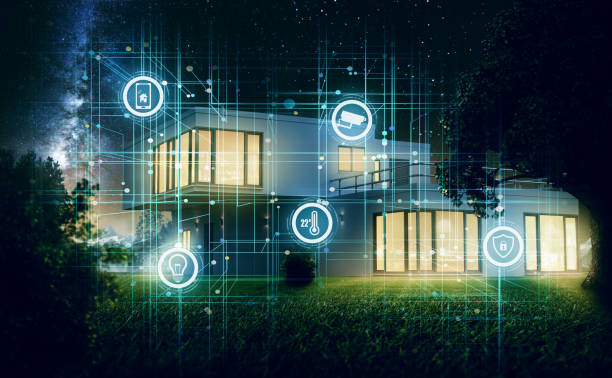Adopting cutting-edge technologies in the real estate market has the potential to alter forever how business is conducted in this age-old industry.
The real estate sector is a significant part of the global economy, with a global value of about $514 trillion in 2020.
In certain ways, real estate has lagged behind other industries in technological development.
It was also due to a reluctance to abandon tactics that had previously worked well.
Another issue hindering the adoption of real estate technology was the efforts of large businesses to develop proprietary tools.
However, these concerns are dissipating, and real estate technology has become popular in recent years.
Furthermore, industrial players are beginning to recognize the advantages of investing in real estate and utilizing current technologies.
We believe that PropTech (Property Technology), which combines real estate and technology, is a branch that will open up entirely new economic prospects worldwide.
PropTech is a rapidly expanding segment of the real estate market today.
Technology enhances valuation and property management operations and improves the comfort of property users.
What is PropTech?
Proptech is an ambiguous term made up of the words “property” and “technology.”
It includes all of the solutions that contribute to the development of commercial real estate software.
CREtech stands for commercial real estate technology, whereas REtech stands for real estate technology.
It is most commonly used to describe the software used in real estate tools and applications.
New technology (both offline and online) and apps have helped the property and real estate sector’s digital transformation and business models adapt to changing consumer habits, similar to FinTech.
With new generations of clients and realtors choosing smart solutions that promote smoother rentals and more efficient living arrangements, the business shows no signs of slowing down.
Real estate: Future of Real Estate Investing: Smart Home Technologies

How Software Technology Can Aid PropTech
The ability of technology to give value to its users will determine whether or not it is adopted successfully in the real estate sector.
Certain features are extremely significant to users.
These include photos, extensive information, floor plans, real estate agent contact information, and virtual tours.
Real estate technology assists users in meeting their demands and providing them with vital information they may use to make decisions.
Here are a few ways software technology can bring real estate customers the value they seek.
3D Virtual House and Apartment Tours
Software solutions that allow prospective purchasers to take a virtual tour of homes while deciding are closely related to search applications.
It saves the buyer time and money by eliminating the need to visit many properties, most of which can be eliminated from the buyer’s list of possible acquisitions after a virtual tour.
Of course, most purchasers will want to take a physical tour of the home before making a final selection.
Even so, the time and money the client and real estate agent save in selecting the greatest fit can add up rapidly.
Furthermore, today’s Virtual Reality technology in the real estate sector enables nearly realistic virtual tours of residences.
This allows you to readily inspect the property’s condition, interior features, and furniture.
Read: 10 Questions to Ask Your Landlord Before Signing a Lease
Artificial Intelligence and Machine Learning
In terms of customer service, customers who use real estate software want to receive the greatest service and experience possible.
Contact channels must be available 24 hours a day, 7 days a week, with a response time of as little as feasible and a low mistake rate.
An automated service desk using conversation AI, a technological technique more advanced than standard chatbots, can readily meet these requirements.
For real estate agents, AI can simplify the lead generation process.
Most agents are aware that they will receive a large number of non-serious website visitors and potential leads.
Rather than the agent having to comb through all of their leads to determine which have the best chance of becoming real customers in the near future, deep learning allows artificial intelligence to evaluate leads appropriately.
We Design & Develop Websites, Android & iOS Apps
Looking to transform your digital presence? We specialize in creating stunning websites and powerful mobile apps for Android and iOS. Let us bring your vision to life with innovative, tailored solutions!
Get Started TodayFor customers, AI can transform the house search process.
Many of today’s house search tools can use search criteria to determine a user’s preferences and then select properties based on that information.
Most algorithms can then suggest alternative listings that would suit the user’s search criteria, with the best-fitting items appearing first in the user’s search results.
Read: AI in Real Estate: Boosting Property Sales and Marketing
Blockchain and smart contracts
The link between blockchain technology and real estate may not be obvious to less tech-savvy readers.
While many people know how the blockchain is utilized in bitcoin and other cryptocurrencies, it also has many uses in other industries, including real estate.
Blockchain technology can validate encrypted transactions and ensure that financial records are not tampered with.
Important papers, such as property titles, can be safely stored using this technology.
Blockchain provides a strong platform for the RetEch and FinTech alliance.
One of the most contentious issues here is whether or not smart contracts may be used to buy and sell real estate.
Smart contracts reduce the number of people involved in the process.
They also provide a neutral central administrator and a system that cannot be abused.
All actions and requirements are disclosed transparently via smart contracts.
As with other market sectors, the real estate industry’s potential for using blockchain in other circumstances has barely been explored.
Read: Real Estate Virtual Tours Revolutionizing Online Listings
Total automation
Today’s business environment compels organizations to automate real estate duties or processes to keep up with the times.
Real estate companies can automate their internal team workflow to save time on manual processes.
They can also automate their sales and marketing processes to make lead generation and customer follow-up easier.
In addition, automation can be applied to customer care, finances, and invoicing to reduce paperwork.
There are also applications for appraisals and field inspections to reduce manual errors and report delivery time, and many other aspects.
Mobile applications
Mobile is one of the most efficient technologies in the real estate market, as seen by the development of several real estate apps.
The most popular are mobile platforms for renting and purchasing.
Compared to traditional methods of finding an apartment or house, these applications provide several benefits to potential renters.
Databases are updated regularly, offering more up-to-date information on newly listed properties as well as those that have sold.
Apps customized to the needs of consumers interested in buying, selling, or renting a home are also available.
They can assist you in finding the home of your dreams and connect you with a real estate agent to help you close the deal.

The Future of Real Estate Technology
Proptech is a relatively new industry that is predicted to explode in the next years.
As the world’s population is expected to quadruple by 2050, so will the demand for real estate.
In any case, as people worldwide become more familiar with technology, the opportunities will continue to grow.
Because everyone interacts with the real estate sector in some way, it will significantly impact the lives of many people in the years to come.
Conclusion
In conclusion, integrating software technology into the real estate sector is not just a trend.
It is a necessity for future growth.
PropTech is reshaping the industry by enhancing efficiency, improving user experiences, and driving innovation.
As technology advances, its real estate applications will expand.
This will offer new opportunities and solutions for consumers and professionals.
We Design & Develop Websites, Android & iOS Apps
Looking to transform your digital presence? We specialize in creating stunning websites and powerful mobile apps for Android and iOS. Let us bring your vision to life with innovative, tailored solutions!
Get Started TodayEmbracing these technological advancements will be key to staying competitive and meeting the evolving needs of a growing global population.
The future of real estate lies in the successful marriage of technology and property, paving the way for a more connected and efficient industry.
Before You Go…
Hey, thank you for reading this blog post to the end. I hope it was helpful. Let me tell you a little bit about Nicholas Idoko Technologies.
We help businesses and companies build an online presence by developing web, mobile, desktop, and blockchain applications.
We also help aspiring software developers and programmers learn the skills they need to have a successful career.
Take your first step to becoming a programming expert by joining our Learn To Code academy today!
Be sure to contact us if you need more information or have any questions! We are readily available.
Put Your Tech Company on the Map!
Get featured on Nicholas Idoko’s Blog for just $200. Showcase your business, boost credibility, and reach a growing audience eager for tech solutions.
Publish Now









